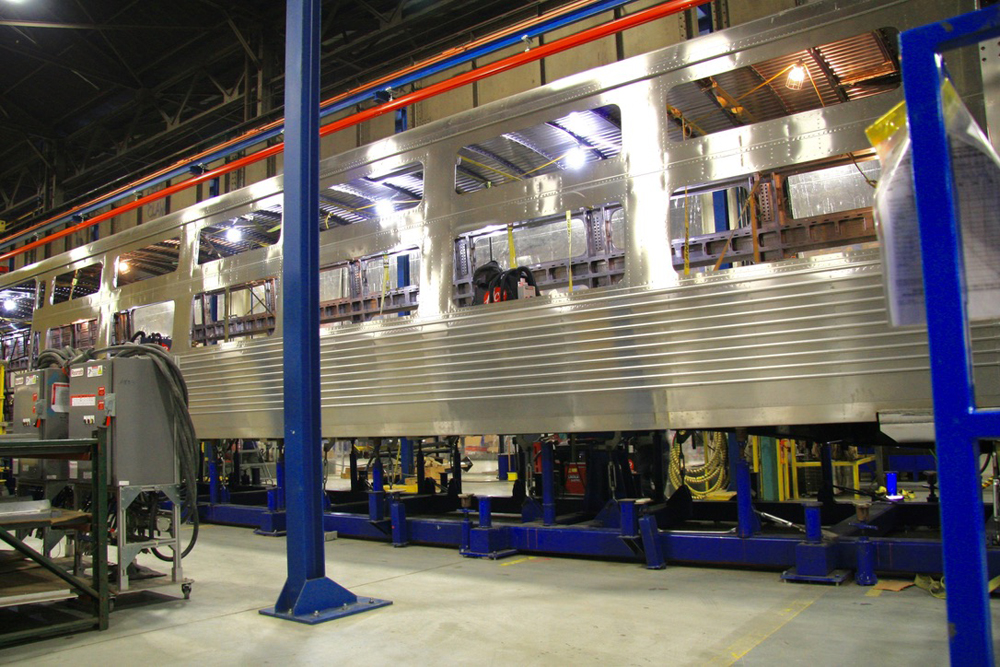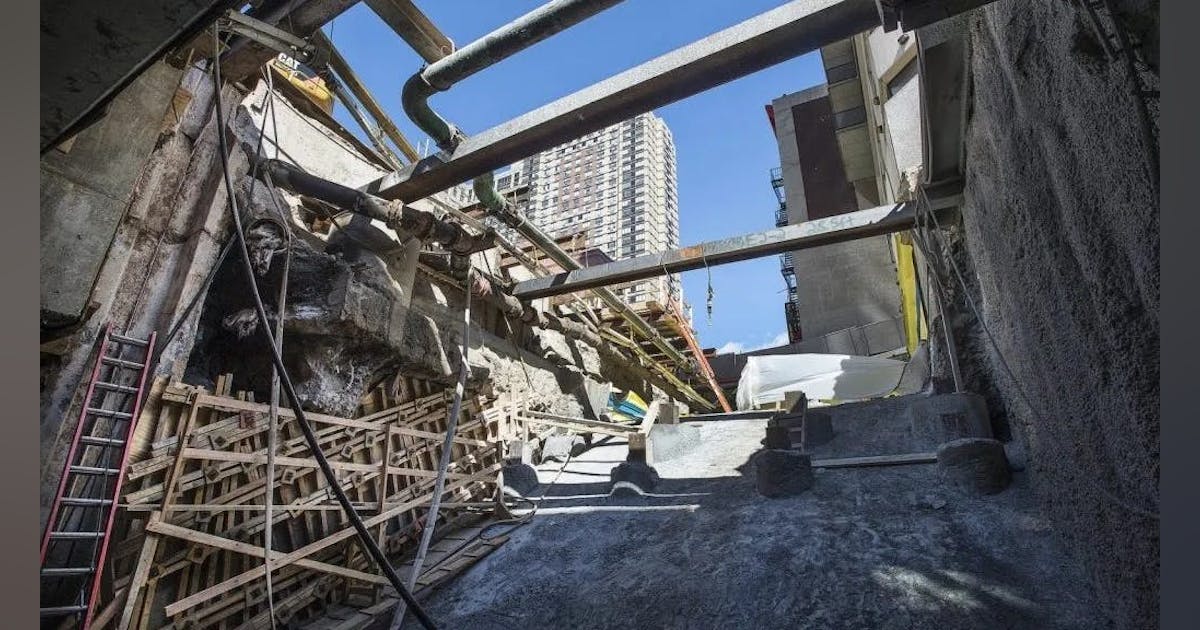JeffDowntown
Senior Member
- Joined
- May 28, 2007
- Messages
- 4,795
- Reaction score
- 3,661
Isn't MTA getting a lot less money under the reduced congestion pricing plan?Paywalled, but from the sub-header I wonder why only 85 out of the 435?
Isn't MTA getting a lot less money under the reduced congestion pricing plan?Paywalled, but from the sub-header I wonder why only 85 out of the 435?
These are all single platform though, right? That works out to $21 million per station, which is about the same as what the MBTA paid for Freetown and Fall River Depot. 3 years is also not really impressive for construction times, Chelsea was done in around 2 1/2.
ConnDOT/Metro-North finally fishing the Waterbury Branch out of the fourth world with aggressive plans to renovate every station with full-highs. 5 stations for $106M (the 6th station is already funded/scheduled under a separate project) and full construction completion in only 3 years. Makes the T's overly long, overly expensive, overly fraught CR station renos look like the dumpster fire they so very are.
That's exactly correct. Waterbury would be the very last ConnDOT line to be electrified, if ever...so using vestibule-door coaches would allow them to berth at curved platforms.Interesting that Beacon Falls and Ansonia would have curved high-level platforms. I thought CTDOT always insisted on 100% tangent track for platform siting. Do they see curved platforms as “ok” here because the rolling stock they’ll be using on the line (Alstom Xtrapolis EMUs, converted into unpowered coaches) has end-point doors, rather than the quarter-point doors you get on Metro-North and Shore Line East trains?


Tectonic Engineering notes the major component of the contract involves complex relocation of all underground utilities from 105 St. to 110 St. on Second Avenue at the site of the future 106 St. Station. Utilities requiring relocation include water, sewer, communication and electrical, as well as the shifting of a sensitive oil-o-static line providing high voltage transmission services for Con Ed’s Manhattan customers. Tectonic Engineering says the work will facilitate the subsequent cut-and-cover construction of the station and connections to running tunnels.

 www.denverpost.com
www.denverpost.com
If all proceeds smoothly, regular daily passenger train service between Denver and Grand County — a portion of the full corridor — could begin in time for the start of the ski season in late 2026. For several years, Amtrak has run the revived Winter Park Express ski train along that route seasonally, but only around weekends — including from Thursdays through Mondays this season.
The mountain rail expansion could eventually lead to up to three roundtrip services per day between Denver and Craig, with several stops, including Winter Park and Steamboat Springs, along the way.


I'm absolutely not going to defend Brightline's safety record. The route is way to dangerous, especially considering how recently it was built. That being said, it would make more sense to compare total revenue miles instead of the system length. It appears that they are running 16 round trips a day, which is much better service than the vast majority of mainline passenger rail services. Again, the deaths and injuries on Brightline are unacceptably high.The horrifying statistic in that article is the following:
View attachment 59060
The FRA says that between 2020 and Sept 2024, it's had 43. In that time, nationally there were 1762 crossing fatalities nationwide - meaning that Brightline in just 235 miles accounts for 2.5% of all crossing fatalities. By comparison, the MBTA operates on 394 miles and had just 5.
Brightline's got almost 170 total grade crossings over its length. Elimination is functionally impossible on that route. Quadrant gates would help a lot for gate evaders like this most recent incident, but it's not an outright FRA requirement for Class 6/110 MPH track unless it's a quiet crossing. Maybe it needs to be.This is why grade seperation is important for fast trains. Its expensive though and florida…
Definitely true, but in the comparison that @Stlin made with our commuter rail, surely the 'T operates more revenue miles than Brightline. That 43:5 Brightline:MBTA ratio is terrible even when adjusted for revenue miles.That being said, it would make more sense to compare total revenue miles instead of the system length.
I share your concern, but at the same rate how are emergency vehicles supposed to respond to emergencies if trains block them? Granted Brightline should pass a crossing quickly, but if the response vehicle already had to wait for another trainset and has to wait for a second one what kind of damage is being suffered by their slow response time? One would think there would be a communication system between trains and emergency response entities. Kind of like Air Traffic Controllers (maybe this already exists?) that would be able to assist in these types situations.And my goodness, how did the fire fighters not follow the safety requirements? If trained emergency responders in Florida don't understand the purpose of the gates, how can we expect casual civilian drivers to get their heads around it?
